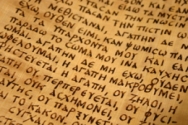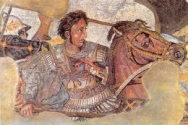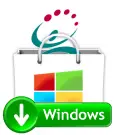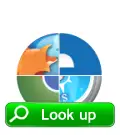| Freelang dictionary |
| Other Freelang resources |
| Sponsored Links |
Freelang Koine Greek-English dictionary
| Related dictionaries |
| We also have a Modern Greek dictionary (more than 21,000 entries). |
| Live from the Blog |
|
Maldivian and five other new dictionaries Maldives is well known for its breathtaking atolls and stunning resorts, but it also has its very own language. Maldivian, or Dhivehi (which means ‘islanders’ in Sanskrit) is an Indo-Aryan language spoken by about 300,000 people. It is closely related to the Sinhalese language spoken in Sri Lanka, and has been influenced by Arabic, French, Persian, Portuguese, Hindustani, and English. Maldivian is written from right to left in a script that shares some [...] As promised, more updates today: English-Georgian, English-Old English, English-Maltese and English-Esperanto. The largest update is the Georgian dictionary, our previous wordlist used romanized characters and had about 3,500 entries, but the new wordlist displays Georgian characters and has about 50,000 entries. Our Old English dictionary got a lot bigger too, from about 6,000 entries to more than 30,000 (there might be a few similar entries though). In [...] |
![]()
Koine comes from the Greek word that means "common". Koine Greek was the form of Greek that was spoken during Hellenistic (300 BC-30 BC) and Roman (30 BC-300 AD) antiquity. Its development followed the conquests of Alexander the Great, that's why Koine Greek is sometimes named Alexandrian dialect. Koine Greek became the common lingua franca in the Mediterranean region and the Middle East. It was the main language of the Byzantine Empire and it evolved into Medieval Greek, which is the ancestor of Modern Greek. Koine is also the language of the Christian New Testament, that's why it's sometimes known as "Biblical Greek" or "New Testament Greek".
Features of this dictionary
Download our free dictionary (for Windows or Android) and browse both the Koine Greek-English and the English-Koine Greek lists. Look up a word, add or modify an entry, and learn words at your own rhythm from a personal learning list. Click here to learn more about the features or scroll down to download the program. An online version is also available, so you can browse the dictionary without downloading it.
Features of this dictionary
Download our free dictionary for Android! Browse the wordlists, look up words and practice your vocabulary at your own rhythm. An online version is also available, so you can browse the dictionary without downloading it.
Word list information
This dictionary was made by John Jeffrey Dodson.
List status: public domain
Koine Greek > English: 5,408 words
English > Koine Greek: 7,408 words
First upload: July 16, 2014
Download
1. Read and accept the terms of our copyright notice
2. Click here to download the program (2.21 mb)
3. Click here to download the Koine Greek word list (687.36 kb)
4. Double click on each file and install in suggested folder.
Other Freelang resources
We have more than dictionaries and translation! Check out our collection of common expressions translated in all languages, test your knowledge with our quizzes about languages, or learn more about language families. To stay in touch with us, read our blog about languages and follow us on Facebook.






